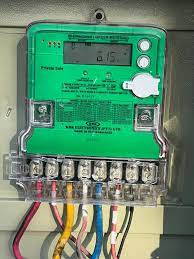Page Contents
An Overview of the Net Metering System
A billing mechanism known as net metering is used to provide owners of solar energy systems with credit for the amount of electricity that they contribute to the grid. Using net metering, households and businesses that generate their electricity using solar panels or other renewable energy technologies have the potential to lower their monthly utility bills while also making a contribution to the stability of the grid. Net metering is an essential instrument in the evolution of the energy sector in Pakistan, which is a country where the demand for energy frequently exceeds the supply. This method helps to create sustainable growth and energy independence.
Several financial benefits associated with net metering include cost reductions and opportunities for investment.
In Pakistan, net metering has a number of immediate economic benefits, one of the most direct being the significant cost reductions that it provides to customers. Participants who participate in net metering have the ability to considerably lower their monthly electricity bills by producing their own electricity. The savings that accrue over time can offset the initial cost of installing renewable energy systems, making it an investment with potential for high returns. Additionally, the extra energy that is produced can be sold back to the grid, which provides an additional cash stream for the owners of the system.
Job creation and the development of industry
As a result of the implementation of net metering in Pakistan, the renewable energy sector has experienced rapid expansion, which has resulted in the creation of employment opportunities across a wide range of businesses, including the production, installation, and maintenance of renewable energy systems. This increase not only helps to achieve a reduction in unemployment, but it also contributes to the development of a professional workforce that is proficient in the most recent technology related to renewable energy.
Independence from energy sources and stability
Through the reduction of dependency on imported fossil fuels, which are susceptible to fluctuating pricing and geopolitical conflicts, net metering makes a contribution to the achievement of energy independence. Through the encouragement of the utilization of renewable energy sources that are sourced locally, net metering contributes to the stabilization of Pakistan’s energy supply and insulates the economy from changes in the global energy price. This energy diversification not only contributes to a more stable and predictable energy sector, but it also helps with the enhancement of national security.
Net metering has a number of environmental impacts, including a reduction in emissions of greenhouse gases.
The implementation of net metering in Pakistan has resulted in significant environmental benefits, the most important of which is the reduction in emissions of greenhouse gases for the country. Net metering lessens the reliance on fossil fuel-powered power plants, which are significant contributors to carbon emissions. This is accomplished by making it easier for renewable energy sources to achieve widespread adoption. Not only does this modification help to reduce the effects of climate change, but it also helps to enhance air quality, which ultimately results in improved health outcomes for the community.
The protection of the earth’s natural resources
Net metering encourages the utilization of renewable energy sources, which are both abundant and sustainable. Some examples of these sources include solar and wind power. These renewable resources, in contrast to fossil fuels, do not diminish over time, which ensures a long-term energy solution that conserves the natural resources of the earth. In order to lessen its impact on the environment and pave the path for a more sustainable future, Pakistan can lower its environmental footprint by harnessing the power of the sun and wind.
Promoting the Development of Sustainable Practices
Putting an emphasis on the need for clean energy and the preservation of the environment, the implementation of net metering in Pakistan is in line with the global sustainable development goals. Through the reduction of emissions and the reduction of dependence on non-renewable energy sources, net metering helps to contribute to a more sustainable and healthy environment. This dedication to sustainability not only benefits the generations that are currently living, but it also assures that future generations will have a planet that is habitable.
The Obstacles and Prospects for the Future
It is necessary to solve issues such as regulatory impediments, financial difficulties, and technical limits in order to fully realize the potential of net metering in Pakistan. Despite the fact that net metering offers enormous economic and environmental benefits, these challenges must be overcome. Increasing public awareness, strengthening policy frameworks, and investing in infrastructure are all essential efforts that must be taken in order to face and overcome these difficulties.
As a result of rising investments in renewable energy and an increased awareness of the advantages of net metering, the future of net metering in Pakistan appears to be bright. As technology continues to progress and costs continue to decrease, net metering is positioned to play a vital role in Pakistan’s transition to a future that is both sustainable and energy-independent.
In spite of the fact that it has the promise of numerous advantages, the process of implementing net metering in Pakistan is fraught with a wide range of obstacles that need to be overcome before it can reach its full potential. Regulatory obstacles constitute a substantial barrier, as the widespread adoption of net metering is hampered by complex rules and a lack of legislation that is supportive of the practice. Potential adopters have a tough time gaining access to cheap financing options for the installation of renewable energy systems, which further complicates the scene thanks to the obstacles associated with financing. In addition, there are a number of technical challenges that make it difficult to integrate net metering systems into the national grid, such as limitations in the grid infrastructure and a lack of workers with the necessary skills.
Taking a multi-pronged approach is absolutely necessary in order to overcome these challenges. It is of the utmost importance to strengthen regulatory frameworks in order to create regulations that are both explicit and supportive of net metering. The simplification of procedures for grid connection and the guarantee of equitable reimbursement for net-metered electricity are both included in this commitment. Increasing public awareness about the advantages of renewable energy and net metering has the potential to stimulate consumer interest in and adoption of these technologies. Furthermore, in order to increase capacity and make the assimilation of renewable energy sources as easy as possible, large expenditures in grid infrastructure and technical training programs are required.
Final Thoughts
The implementation of net metering in Pakistan is a ray of hope in the search for environmentally and economically sustainable energy solutions. This practice has advantages for both the economy and the environment. The implementation of net metering has a substantial impact on the expansion of the nation’s economy since it enables cost reductions, the development of new jobs, and energy independence. During the same time period, its environmental impacts, which include the reduction of emissions of greenhouse gases and the conservation of natural resources, are in line with the efforts that are being made on a worldwide scale to combat climate change. The potential for net metering to completely revolutionize Pakistan’s energy market is enormous, despite the fact that encountering hurdles is inevitable. By providing Pakistan with ongoing support and investment, net metering has the potential to move the country towards a more environmentally friendly and sustainable future, thereby serving as a model for other countries to emulate.




